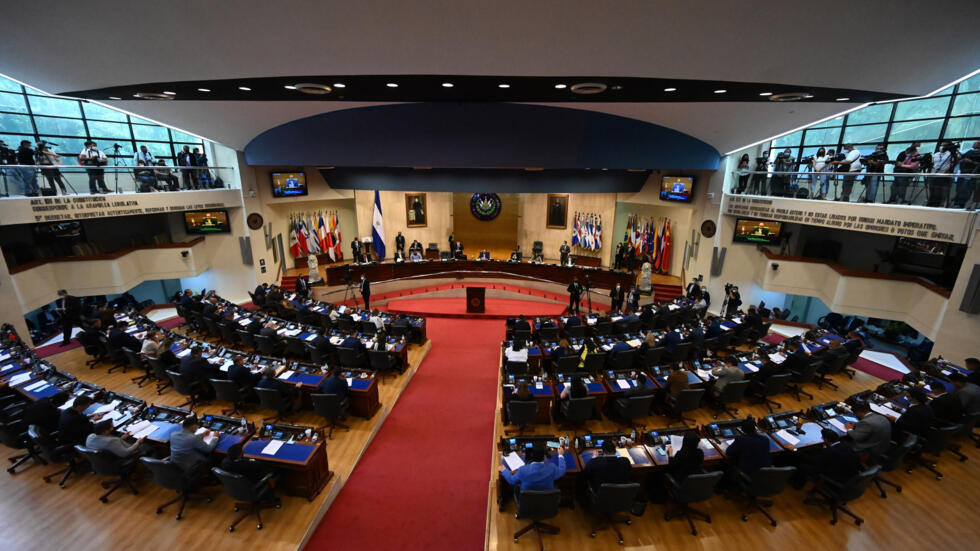Estimated reading time: 2 minutes
El Salvador’s Congress repealed a law on Wednesday that criminalized the publication of gang messages, as ruling party leaders declared victory in their war against criminal groups.
President Nayib Bukele launched a sweeping crackdown on the small Central American nation’s hyper-violent gangs early last year, sharply reducing crime rates while the incarceration skyrocketed, and is now the highest in the world.
Lawmakers passed the reform to target anyone who spread or otherwise reproduced graffiti “or any form of visual expression” attributed to gangs, including Mara Salvatrucha and its rival Barrio 18.
The law’s critics argued it unjustly targeted journalists, who often source stories based on images showing graphic violence, including messages left by alleged gang members, or even interviews, graffiti and audios shared on social media.
The senior legislator from Bukele’s New Ideas party behind the original measure, Christian Guevara, was added to a U.S. blacklist for “corrupt and undemocratic actors” – commonly known as the “Engel List” – for promoting the law.
No arrests were ever made under the law, though El Salvador’s journalists association APES slammed it as “a clear attempt at censorship of media” immediately after it was approved.
Legislators who had backed the law said it had served its purpose.
“We have won the war on gangs and we can change our criminal policy,” said Walter Coto, a New Ideas congressman, as the repeal was passed by all legislators present.
Bukele enjoys unprecedented popularity at home due largely to the crackdown, but rights groups argue the policy has unjustifiably curtailed basic due process rights, like the ability to mount a legal defense, while sending more than 73,000 suspected gang members to jail.
The president denies the abuses and has rejected reports that he had agreed to truces with gangs. (Reuters)



































